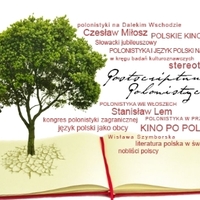Dorota Dremierre - Profile on Academia.edu (original) (raw)

Related Authors
Uploads
Papers by Dorota Dremierre
Roczniki Humanistyczne
The Polish version of the article was published in “Roczniki Humanistyczne,” vol. 63 (2015), issu... more The Polish version of the article was published in “Roczniki Humanistyczne,” vol. 63 (2015), issue 1. A complex political game, differences in the level of development of the political, social and aesthetic thought, different customs, and also frequently a language gap—all these conspired against the Polish-French dialogue in the sphere of culture in the years 1573-1574. The article analyzes the opportunities for both parties to get to know each other during the Polish episode of Henri de Valois: a visit by the Polish group of envoys to Paris in the summer of 1573, and a poetical exchange between Philippe Desportes and Poles, including Jan Kochanowski, that closed the Henri period. The exchange, up till the recent times called univocally a “duel,” turns out to be, in the case of Adieu à la Pologne and Gallo crocitanti ἀμοιβή the starting of a real, albeit ephemeral dialogue beyond the political and everyday reality, one on the level of art.
Humanizm i reformacja. Dialog wartości w polsko-francuskich stosunkach literackich i kulturalnych od XV do końca XVI wieku
Niebezpieczeństwa „galanterii”, czyli wpływy francuskie a przemiany w mentalności i kulturze intelektualnej Rzeczypospolitej XVII wieku
Roczniki Humanistyczne
The Polish version of the article was published in “Roczniki Humanistyczne,” vol. 63 (2015), issu... more The Polish version of the article was published in “Roczniki Humanistyczne,” vol. 63 (2015), issue 1. A complex political game, differences in the level of development of the political, social and aesthetic thought, different customs, and also frequently a language gap—all these conspired against the Polish-French dialogue in the sphere of culture in the years 1573-1574. The article analyzes the opportunities for both parties to get to know each other during the Polish episode of Henri de Valois: a visit by the Polish group of envoys to Paris in the summer of 1573, and a poetical exchange between Philippe Desportes and Poles, including Jan Kochanowski, that closed the Henri period. The exchange, up till the recent times called univocally a “duel,” turns out to be, in the case of Adieu à la Pologne and Gallo crocitanti ἀμοιβή the starting of a real, albeit ephemeral dialogue beyond the political and everyday reality, one on the level of art.
Humanizm i reformacja. Dialog wartości w polsko-francuskich stosunkach literackich i kulturalnych od XV do końca XVI wieku
Niebezpieczeństwa „galanterii”, czyli wpływy francuskie a przemiany w mentalności i kulturze intelektualnej Rzeczypospolitej XVII wieku









